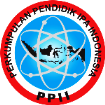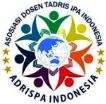An In-Depth Comparative Analysis of Science Curricula in Türkiye and Indonesia
Abstract
Government policies, including curriculum development, significantly impact education quality. Indonesia's frequent curriculum changes contrast with Türkiye's 2017 curriculum overhaul. Türkiye outperforms Indonesia in science literacy based on PISA 2018 results. The Merdeka Belajar policy aims to enhance Indonesia's global competitiveness, particularly in STEM education. Curriculum approaches differ, with Türkiye emphasizing practical learning and early physics concepts, while Indonesia relies more on rote memorization. Frequent curriculum changes in Indonesia stem from political and regional factors. This study highlights disparities in PISA scores and curriculum structures, underscoring areas for Indonesia's improvement. Adapting to international standards while considering local contexts is crucial for enhanced science literacy. The research employs a case study methodology, utilizing curriculum documents, interviews, and research articles for analysis, providing insights and recommendations for both countries. Research results indicate that Türkiye's structured curriculum and emphasis on practical learning contribute to its higher science literacy scores compared to Indonesia. In conclusion, this study underscores the need for Indonesia to align its curriculum policies with international standards, while also focusing on fostering critical thinking and practical learning approaches to enhance science literacy outcomes and remain globally competitive in education.
Keywords: Curriculum Development; Education Policies; Science Literacy; Comparative Study
Full Text:
PDFReferences
Abidin, D., Retnaningrum, E., Parinussa, J. D., Kuning, D. S., Manoppo, Y., & Kartika, I. M. (2023). Curriculum Development in Indonesia from a Historical Perspective. Journal of Education Research, 4(2).
BAL İNCEBACAK, B. (2022). TÜRKIYE VE SINGAPUR ILKOKUL MATEMATIK EĞITIM PROGRAMLARININ MATEMATIK IÇERIKLERININ KARŞILAŞTIRILMASI. Trakya Eğitim Dergisi, 12(3). https://doi.org/10.24315/tred.984222
Bastian, G. E., Buro, D., & Palmer-Keenan, D. M. (2021). Recommendations for integrating evidence-based, sustainable diet information into nutrition education. In Nutrients (Vol. 13, Issue 11). https://doi.org/10.3390/nu13114170
CANSIZ, N., & CANSIZ, M. (2019a). Evaluating Turkish science curriculum with PISA scientific literacy framework. Turkish Journal of Education, 8(3). https://doi.org/10.19128/turje.545798
Clark, J. (2020). Philosophy of Education in Today’s World and Tomorrow’s: A View from ‘Down Under.’ Paideusis, 15(1). https://doi.org/10.7202/1072691ar
El Islami, R. A. Z., Xue, S., Sari, I. J., Ngan, L. H. M., Khwaengmake, V., Khan, S., Bien, N. Van, Faikhamta, C., Khuyen, N. T. T., & Prasoplarb, T. (2022). A Comparison of School Science Curricula of Indonesia, Vietnam, and Thailand. Asia-Pacific Social Science Review, 22(2).
Erwin Akib, Muhammad Erwinto Imran, Saiyidah Mahtari, Muhammad Rifqi Mahmud, Anggy Giri Prawiyogy, Irfan Supriatna, & MT. Hartono Ikhsan. (2020). Study on Implementation of Integrated Curriculum in Indonesia. IJORER : International Journal of Recent Educational Research, 1(1). https://doi.org/10.46245/ijorer.v1i1.24
Fernando, M., Syarif, H., & Zainil, Y. (2022). Exploring Challenges in Implementing a Merdeka Belajar KAMPUS MERDEKA Curriculum: A Qualitative Analysis of Students’ Perceptions. Proceeding of the 2nd International Conference on Language Pedagogy, November.
Fuadi, T. M., & Irdalisa, I. (2022). Merdeka Belajar Kampus Merdeka: Application in Education Faculty. AL-ISHLAH: Jurnal Pendidikan, 13(3). https://doi.org/10.35445/alishlah.v13i3.1125
Handayani, R. D., Wilujeng, I., & Prasetyo, Z. K. (2018). Elaborating indigenous knowledge in the science curriculum for the cultural sustainability. In Journal of Teacher Education for Sustainability 20(2)). https://doi.org/10.2478/jtes-2018-0016
Lestari, S. (2018). Peran Teknologi dalam Pendidikan di Era Globalisasi. EDURELIGIA; JURNAL PENDIDIKAN AGAMA ISLAM, 2(2). https://doi.org/10.33650/edureligia.v2i2.459
Malik, R. S. (2018). EDUCATIONAL CHALLENGES IN 21ST CENTURY AND SUSTAINABLE DEVELOPMENT. Journal of Sustainable Development Education and Research, 2(1). https://doi.org/10.17509/jsder.v2i1.12266
Muttaqiin, A. (2023). Pendekatan STEM (Science, Technology, Engineering, Mathematics) pada Pembelajaran IPA Untuk Melatih Keterampilan Abad 21. JURNAL PENDIDIKAN MIPA, 13(1). https://doi.org/10.37630/jpm.v13i1.819
Ni’mah, F. (2019). Research trends of scientific literacy in Indonesia: Where are we? Jurnal Inovasi Pendidikan IPA, 5(1). https://doi.org/10.21831/jipi.v5i1.20862
OECD. (2018). OECD Science, Technology and Innovation Outlook 2018. In OECD Publishing.
OECD. (2019). PISA 2018 Science Framework. PISA 2018 Assesment and Analytical Framework.
OECD. (2023). National Accounts of OECD Countries, Volume 2022 Issue 2. In OECD (Vol. 2020, Issue 2).
Oo, P. S., Choy, C. S., Goldman, E. F., Schlumpf, K. S., Scott, A. R., Hallinger, P., McCary, C. E., Mellon, J., Kroth, M., Zaini Abdullah, Mohmad Noor Mohmad Taib, Ikhsan Othman, Norila Md Salleh, Abu Bakar Yusuf, Abdul Talib Mohamed Hashim, Ambilan, N., Smi, K., Vila, J., masifern, E., … Nachtigal, S. (2018). Australian Council for Educational Research The Leadership Challenge : Improving Learning in Schools (Conference Proceedings) Australian Council for Educational Research (ACER). Journal of Strategy and Management, 7(2).
Paek, S., & Kim, N. (2021). Analysis of worldwide research trends on the impact of artificial intelligence in education. Sustainability (Switzerland), 13(14). https://doi.org/10.3390/su13147941
Sampelolo, R., & Kombong, M. T. (2022). THE FUTURE OF ENGLISH LANGUAGE TEACHING AND LEARNING THROUGH “MERDEKA BELAJAR - KAMPUS MERDEKA” (MBKM): A SYSTEMATIC REVIEW. KLASIKAL : JOURNAL OF EDUCATION, LANGUAGE TEACHING AND SCIENCE, 4(1). https://doi.org/10.52208/klasikal.v4i1.118
Sari, S. N. W., & Wardani, N. A. K. (2018). An Analysis of Indonesia’s 2013 EFL Curriculum and Turkey’s National English Language Curriculum for Secondary Schools. IJELTAL (Indonesian Journal of English Language Teaching and Applied Linguistics), 3(1). https://doi.org/10.21093/ijeltal.v3i1.113
Somantrie, H. (2021). Evaluasi Kurikulum Tingkat Satuan Pendidikan. Inovasi Kurikulum, 6(2). https://doi.org/10.17509/jik.v6i2.35698
Sugandi, B., & Delice, A. (2014). Comparison of Turkish and Indonesian Secondary Mathematics Curricula; Reflection of the Paradigms. Procedia - Social and Behavioral Sciences, 152. https://doi.org/10.1016/j.sbspro.2014.09.240
Tang, E. (2022). Public objectives and policy instruments for improving the quality of postgraduate education in China. Frontiers in Psychology, 13. https://doi.org/10.3389/fpsyg.2022.968773
Uzun, S., & Şen, N. (2023). The effects of a STEM-based intervention on middle school students’ science achievement and learning motivation. Arhiv Za Farmaciju, 7(1). https://doi.org/10.33902/JPR.202319315
Vom Brocke, J., Winter, R., Hevner, A., & Maedche, A. (2020). Special issue editorial – accumulation and evolution of design knowledge in design science research: A journey through time and space. Journal of the Association for Information Systems, 21(3). https://doi.org/10.17705/1jais.00611
Walidayni, C. T., Dellyana, D., & Chaldun, E. R. (2023). Towards SDGs 4 and 8: How Value Co-Creation Affecting Entrepreneurship Education’s Quality and Students’ Entrepreneurial Intention. Sustainability (Switzerland), 15(5). https://doi.org/10.3390/su15054458
Winoto, S. (2022). Improving curriculum and lecturers: Challenges to quality based-technology. Journal of Social Studies Education Research, 13(2).
Yudhawasthi, C. M., & Christiani, L. (2022). Challenges of Higher Educational Documentary Institutions in Supporting Merdeka Belajar Kampus Merdeka Program. Khizanah Al-Hikmah : Jurnal Ilmu Perpustakaan, Informasi, Dan Kearsipan, 9(2). https://doi.org/10.24252/kah.v9cf2
YUMUŞAK, G. (2022). National Science Curriculum Documents in Türkiye and The United States: Comparison in terms of Scope and Detail. Participatory Educational Research, 9(5). https://doi.org/10.17275/per.22.119.9.5
DOI: http://dx.doi.org/10.24014/jnsi.v6i1.16745
Refbacks
- There are currently no refbacks.

Journal of Natural Science and Integration
E-ISSN: 2620-5092 P-ISSN: 2620-4967
Published By:
Department of Science Education, Faculty of Education and Teacher Training,
State Islamic University of Sultan Syarif Kasim Riau, Indonesia
Mailing Address:
Jl. H.R Soebrantas Km. 15 No. 155
Kelurahan Simpang Baru
Kecamatan Tuah Madani, Pekanbaru, Riau, Indonesia
Email: jnsi.tadrisipa@uin-suska.ac.id
Indexed By:
Journal of Natural Science and Integration is licensed under a Creative Commons Attribution 4.0 International License.


_-_Copyy2.png)






.jpg)
.png)
.jpg)
.jpg)




